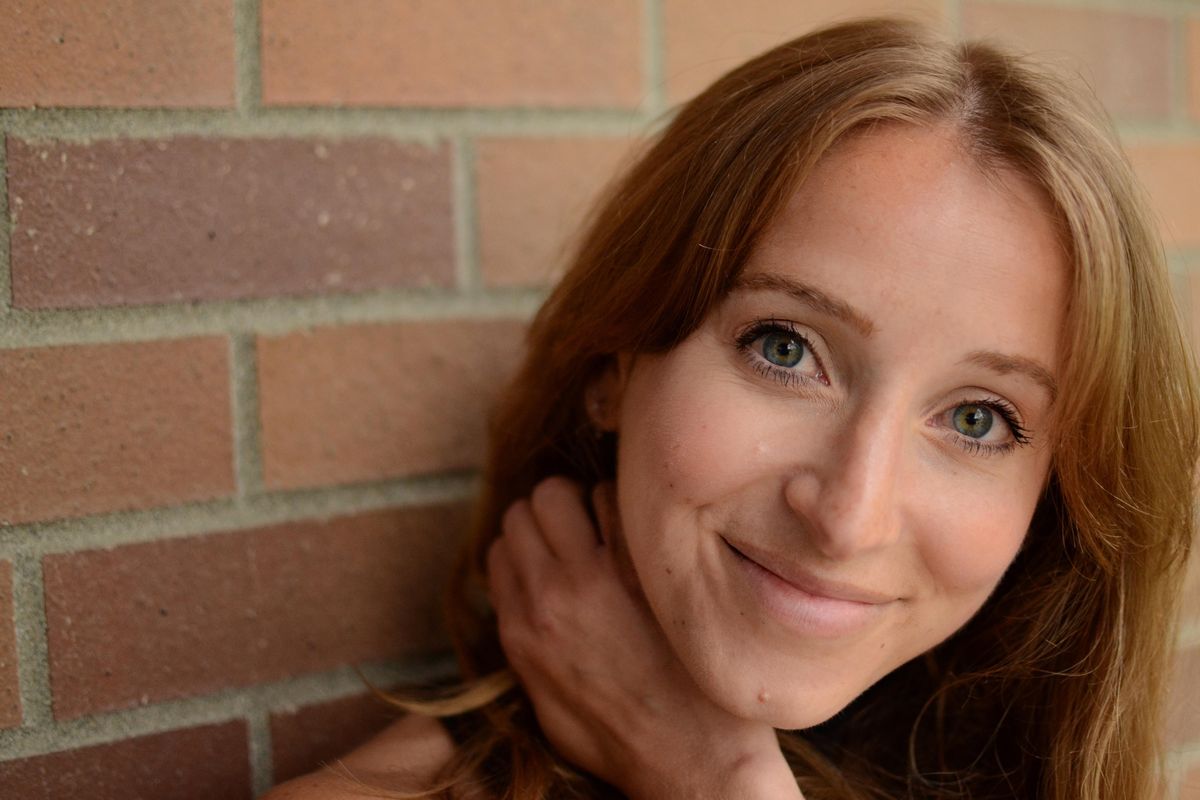Locally Writ: Janelle Cordero’s poetry collection ‘Woke to Birds’ explores faith, spirit

For local poet Janelle Cordero, writing is a nonnegotiable daily pursuit. She wakes up, sits down to a blank page from her endless supply of notebooks and proceeds to devote the best part of her creative energy to her art.
Some mornings might generate two or three poems in the hour and a half she allows herself before leaving the house at 7 a.m. to teach English and creative writing classes at Spokane Community College. Others are less successful.
“I’ve learned to be forgiving of those days when the work feels fruitless,” Cordero said. “What’s important is to write something every day. All of those pages filled with words that aren’t necessarily poems are moving me toward the poem that I’m supposed to write in the future.”
After deciding against pursuing a career in elementary education, she studied English at Whitworth University, where an encouraging professor helped her to see poetry as a viable lifestyle choice. She graduated and entered an MFA program at Pacific University in Forest Grove, Oregon, where she worked with poets such as Ellen Bass and Marvin Bell, slightly frightened of their skill but learning all the while.
Her ongoing education, she said, comes from reading continually and studying her favorite authors. Haruki Murakami, a longtime favorite, encourages her to branch out of poetry and into fiction writing, but she saves this hobby for the freedom of summer holidays.
Her first collection of poetry, “Two Cups of Tomatoes,” was a coming of age piece focused on finding stability and tangible security, but her second and most recent collection, “Woke to Birds,” delves deeper into more abstract anxieties: faith, spirit and mortality.
The poems are interpolated with a set of watercolor portraits painted simultaneously but originally as a separate project. She realized near the end of both projects that the portraits could function as a visual extension of her poetry. Joining the two didn’t take long; the portraits fell into place intuitively, she recalled.
The spiritual focus of “Woke to Birds” aligns with Cordero’s understanding of poetry in general.
“To me, poetry is prayer,” she said. “It’s my way of expressing something that is transcendent and magical and spell-like. It’s a way of honoring the ordinary and the extraordinary, condensing the beauty and the mystical essence of life into something on a page that will then connect with another person.”
While readers aren’t necessarily at the forefront of her mind when she writes individual poems, the order she sets them in for print is purposeful. Some will diligently read through a book of poetry from beginning to end, others might jump in at random; she tries her best to accommodate both.
“It comes together as a whole, but you can also open it anywhere and find something,” she said.
To aspiring writers, she offers the advice she routinely gives her students:
“Read widely and with discernment, find authors who you connect with, and find literary and spiritual teachers who speak the language that you want to learn.”
Surrounding yourself with the work of authors you want to emulate and creating and sticking to a schedule that works for you are crucial.
“If you can only write for 15 minutes a day, that’s better than zero minutes a day. You will make progress and learn about yourself and develop your voice.”